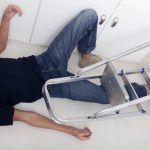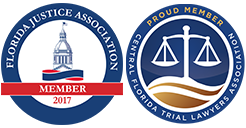 A case for what is known as Product Liability can occur anytime that a product defect causes an injury. In legal jargon, the defect must effectively hinder an item, device or merchandise from being safely used for the purpose for which it was designed and manufactured. If the defect then results in an injury to the user or others, there is a potential products defect case. Product defects are defined as any flaw in the design, manufacturing, production, distribution or marketing of a product that renders the product not reasonably safe to use by the “average” person or individual.
A case for what is known as Product Liability can occur anytime that a product defect causes an injury. In legal jargon, the defect must effectively hinder an item, device or merchandise from being safely used for the purpose for which it was designed and manufactured. If the defect then results in an injury to the user or others, there is a potential products defect case. Product defects are defined as any flaw in the design, manufacturing, production, distribution or marketing of a product that renders the product not reasonably safe to use by the “average” person or individual.
However, just because a product causes an injury does not mean that the injured person has a clear personal injury claim for injury by a defective product. Manufacturers and their insurance companies usually raise many forms of the misuse of a product as a defense to these claims. The manufacturers will allege the product was not defective but merely misused by the injured party. Other defenses commonly raised are user error, lack of maintenance and care of the product, no formal training, poor judgment or other misuse of the product. However, when a defective product does result in a serious injury to a user or others, there are basically three (3) categories of defects that can be pursued in a court of law and classified as a defective product liability case.
Product Defect Liability Categories
Defective product liability claims that are most commonly pursued by claimants in the United States involve some sort of negligence, strict liability, breach of warranty or other various lack of consumer protection allegations. It is important to note that the bulk of the product liability laws are defined at the state level and sometimes the laws are quite different from state to state. However, a decision back in 1963 by the California Supreme Court (Greenman v. Yuba Power Products, Inc.) established what is commonly referred to as “strict tort liability” and became the basis for liability law in all but a couple of states across the nation.
Each type of product liability claim requires different elements to be proven to present a successful claim. If any characteristic of a product hinders its safe usability for the purpose for which it was designed, manufactured, marketed and sold, then defective product liability may be applicable for any injuries that a user incurred. In such circumstances, one of the following three groups of causes will come into play in a legal case or lawsuit.
Design Defects
Design defects arise when a product has been either poorly designed or the product has not been properly or sufficiently tested. In either scenario, the product design or insufficient testing results in an item that cannot be used to safely perform its intended or desired functions. In such cases it is often demonstrated that all of the products manufactured, compounded or distributed will most likely be defective and present a danger to all users of the specific product.
Manufacturing Defects
A product may be properly designed and tested, yet still be defective due to errors in the actual manufacturing process. If a dangerous error does occur during the manufacturing of a product, then the injuries caused to a user can result in a defective product liability case being pursued. Frequently, the manufacturing error may be limited to a certain batch or portion of the product production, and the majority of the product distributed may be safely used. Such examples are commonly seen in manufactured products when the wrong material is used or a sub-standard ingredient is introduced during the process that renders the batch unsafe. This is also sometimes the case in the production of pharmaceuticals, where a dangerous error such as the inclusion of an unsterile ingredient results in the entire product batch being dangerous if administered to patients.
Marketing Defects (also sometimes referred to as a Failure To Warn)
A product may fall into this category if appropriate instructions for using it safely are not made readily available to the user. The instructions must not only be included with the product, but comprehensible by a user of “normal and average intelligence”. Additionally, a product may be considered legally defective if there is a lack of appropriate warnings regarding the potential dangers associated with using the product. The manufacturer, distributor and seller are not only proscribed from misrepresenting the safety of the product, but legally must disclose all known defects to a buyer. Interestingly, with a lack of adequate warnings given to a user regarding a product’s potential danger, product defect liability is still applicable, even if the user misused the product. This is often times the case in pharmaceutical cases where the patient was not adequately warned about side effects such as drowsiness and took the medication excessively, resulting in a serious injury.
Negligence
Although not in itself considered a cause of product liability, it’s important to discuss negligence when discussing liability law. Basically the responsibility of supplying a safe product to the end-user falls on everyone that is involved in the chain of distribution. This means that not only the manufacturer of a defective product is held accountable for any injuries that the defective product may have caused, but also the distributors and vendors who ultimately inspect sell the product. The responsibility of delivering a safe product thus includes a duty to both inspect and test a product during the manufacturing, assembly and even the packaging stages of bringing an item to the marketplace. Additionally, negligence can include not only the individual who initially purchased, rented or leased the product, but the buyer’s family members, innocent bystanders that were injured and any other individuals who may have acquired the product from the purchaser.
Do You Have a Defective Product Liability Case?
As discussed, a wide range of circumstances can render a product defective. If you’ve been injured and believe the injuries were caused by a defective product, we recommend that you contact a personal injury attorney in your state to help you with the claims process. If you reside in Florida, or were visiting or vacationing in the Sunshine State and incurred a serious injury from purchasing or using a defective product, then we urge you to consider calling us to discuss the details. Our firm is experienced in the litigation of defective product liability and we have expert attorneys that deal with such cases. If you believe that you have been injured as a result of a malfunctioning or improperly designed product, please call us today at (407) 423-1313 or contact us online now for a free consultation without any obligation
